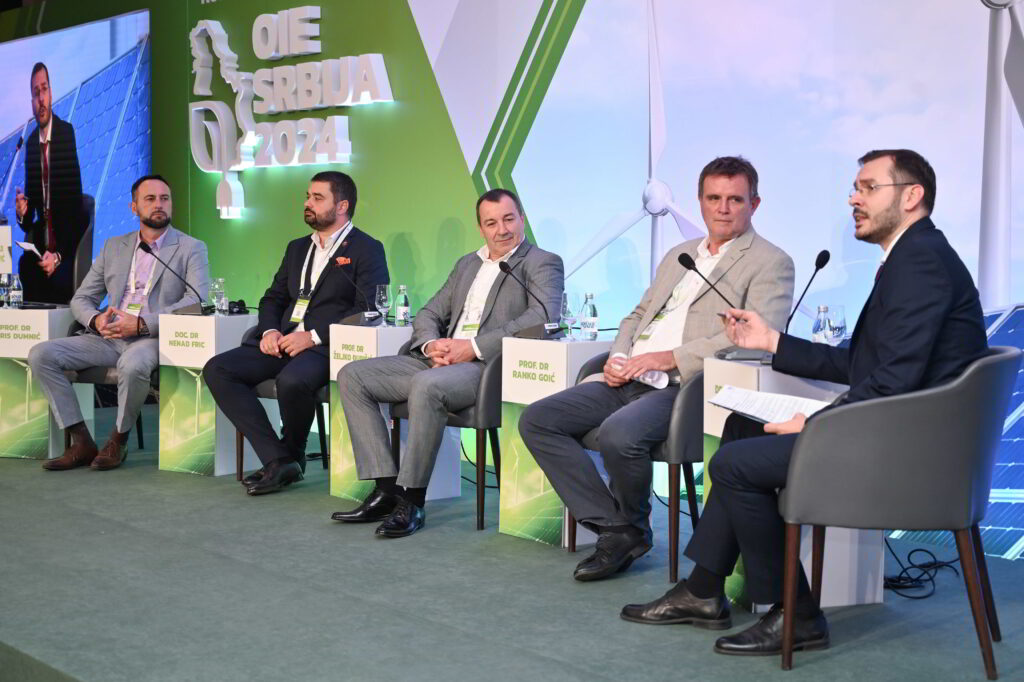Lack of staff is one of the most important topics of the energy transition – this is the conclusion of the panel ‘Education as a key factor of energy transition’, which brought together five PhDs, professors from the Universities of Belgrade, Novi Sad and Split at the conference in Vrdnik.
The moderator of this panel was Dr. Nenad Jovanović, Senior energy Modelling Consultant at Mott MacDonald, while the participants were Prof. Dr. Ranko Goić, Professor at Faculty of Electrical Engineering, Mechanical Engineering and Naval Architecture, University of Split and owner of Fractal, Prof. Dr. Željko Đurišić, Head of the Department of Energy, Faculty of Electrical Engineering, University of Belgrade, Assoc. Prof. Dr. Nenad Fric, Vice Dean for Education at Faculty of Civil Engineering, University of Belgrade, and Prof. Dr. Boris Dumnić, Dean at Faculty of Technical Sciences, University of Novi Sad.
The value of work in the IT sector and the energy sector is not the same
Prof. Dr. Željko Đurišić, Head of the Department of Energy, Faculty of Electrical Engineering, University of Belgrade, reminded that in 2005 the subject of Renewable Energy Sources was established at this faculty, as well as the direction for RES in master studies. As he says, very high-quality engineers come out of the faculties, and the best high school students enroll in technical faculties in Serbia.
– It’s more about the quality of the staff than the lack of it. The value of work in the field of IT sector and energy is not equal, and until that happens, we will have a deficit of workers – the professor points out.
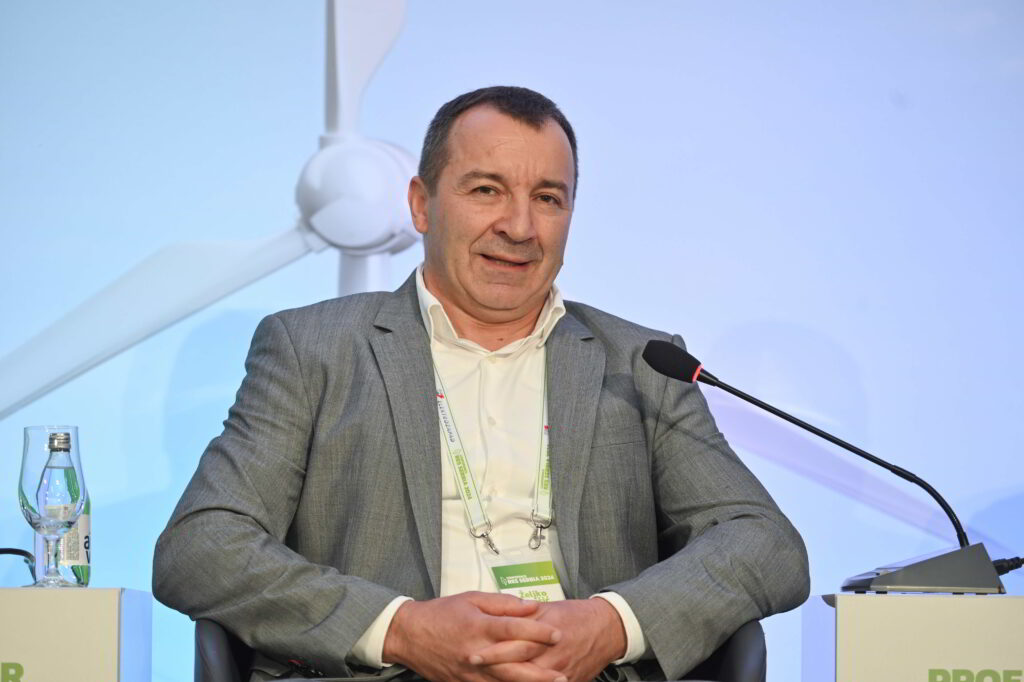
Prof. Dr. Željko Đurišić, Head of the Department of Energy, Faculty of Electrical Engineering
He noted that Serbia has 10-11 GW of technically usable wind potential, of which, there is no doubt, 70% will be on the grid one day. However, as he says, the key word today is not production, but consumption, and only those who manage to match MWh from production and consumption will be successful.
– This means that we will have to use new technologies. Usually, we talk about batteries, but there are other technologies, such as closed-type pumped storage hydroelectric power plants. There are many innovations – says the professor, adding that the integration of the thermal energy sector into RES is also very important.
Nuclear energy, in his opinion, is not the right way to go. As he says, we cannot produce nuclear fuel, for 1000 MW of electricity we need EUR 10 billion, not counting everything that must be invested beyond that.
– I don’t think nuclear power is a resource to be reckoned with, at least not a fission process. Perhaps fusion should be studied – the professor points out.
We need to think about nuclear energy
His colleague, Prof. Dr. Boris Dumnić, Dean at Faculty of Technical Sciences, University of Novi Sad, does not share the same position on this issue. According to him, the moratorium on the construction of nuclear power plants was the wrong decision.
– We need a greater dispersion of energy sources. Nuclear energy is something to think about. We need to take this issue seriously, what we can build, but if we give up, I am afraid that our energy dependence will be worse than today – warns the professor.
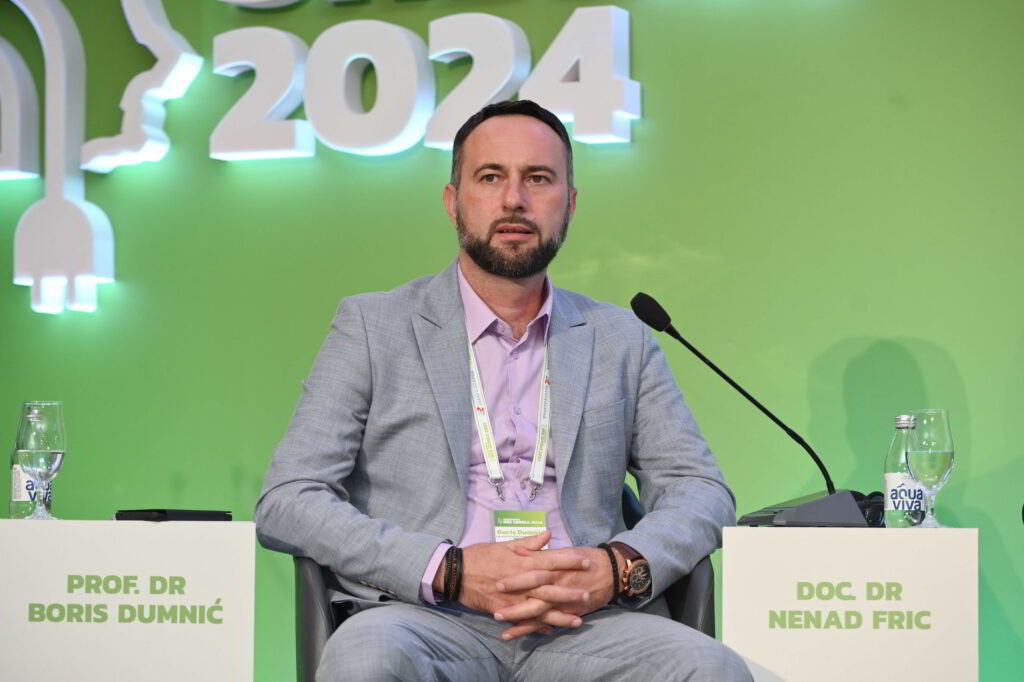
Prof. Dr. Boris Dumnić, Dean at Faculty of Technical Sciences
He notes that in the Balkans we are skeptical of everything that is new, and that was the case 20 years ago when he was doing his graduate thesis on the topic of wind energy. Mostly, he says, he encountered misunderstanding and assessments that these are unstable systems that will destroy the power system.
However, as he notes, individual initiatives made with the suspicious view of the majority, have resulted in the fact that studies dedicated to renewable sources, such as Clean Energy Technologies at FTN, have now been established at most of the leading faculties.
– There is not enough professional workforce to work on RES capacities and manage them. And the teaching staff should be more responsive to the needs of the market, a professor cannot teach students how to design a wind farm without having designed any of them – said Dumnić.
And builders are more and more interested in RES
Assoc. Prof. Dr. Nenad Fric, Vice Dean for Education at Faculty of Civil Engineering, University of Belgrade, reveals that there is a growing interest of students in the master’s degree dedicated to renewable sources at this faculty.
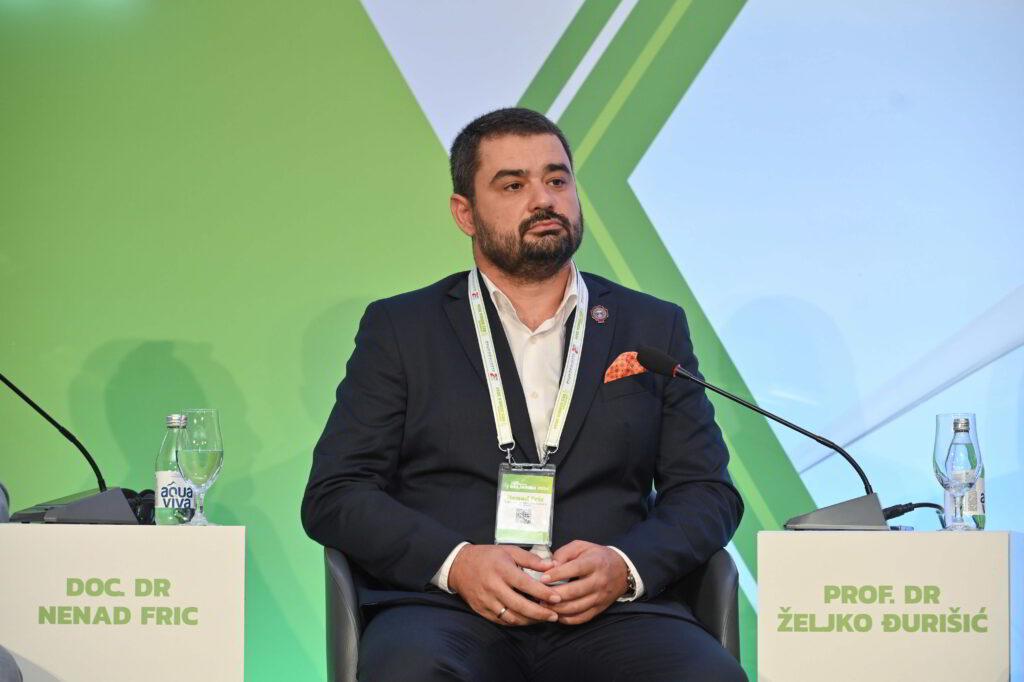
Prof. Dr. Nenad Fric, Vice Dean for Education at Faculty of Civil Engineering
– We builders are not in the focus of RES, but it will be difficult to implement any project without us. Every year, 30-50 students defend their thesis on the construction of wind farms and hydroelectric power plants – he points out, adding that salaries in the construction sector are not equal to the IT sector.
He notes that specialist RES studies could be organized under the auspices of the university, because it is difficult for any faculty to do it alone.
It is necessary to develop basic knowledge
Prof. Dr. Ranko Goić, Professor at Faculty of Electrical Engineering, Mechanical Engineering and Naval Architecture, University of Split and owner of Fractal, reveals that Croatia has 1400 MW of wind, both operationally and under construction, as well as a little less than 1000 MW of solar.
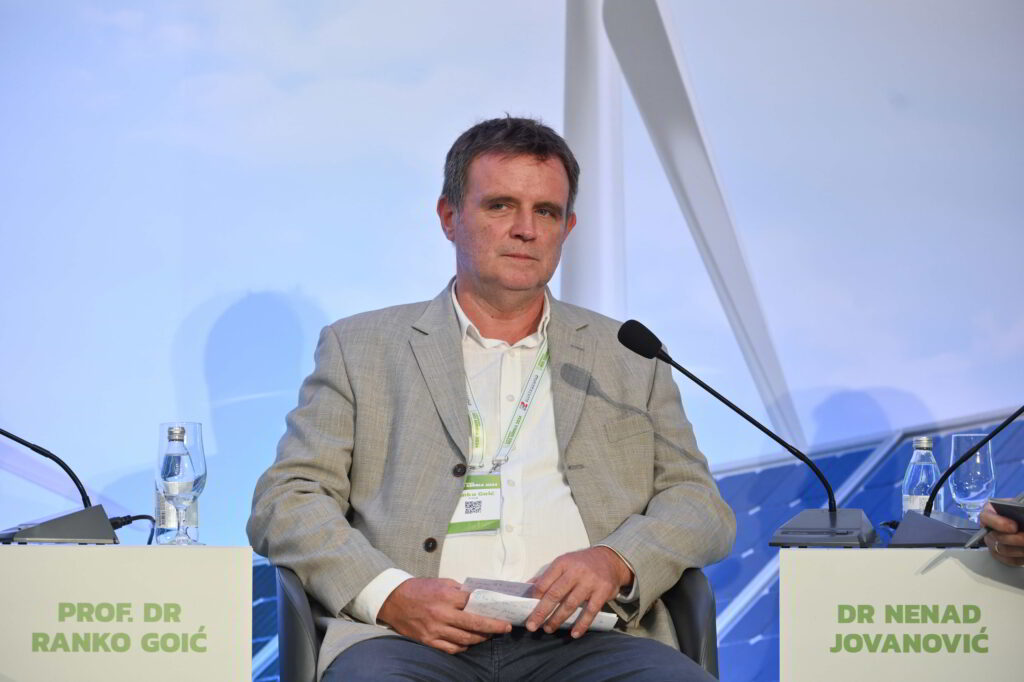
Prof. Dr. Ranko Goić, Professor at Faculty of Electrical Engineering, Mechanical Engineering and Naval Architecture
When it comes to educating new experts, he does not think that a specialized course for renewable sources should be established, but that basic knowledge should be developed.
– As for the salary of IT experts and engineers, in Croatia they are somewhere, a much bigger problem is that students choose IT because it sounds great. I’d rather have an U.S. system with electives instead of specialized studies for renewables. 5% of engineers work on these projects, the rest are networks, base stations, so the point is in basic knowledge, as well as practice. Without serious practice, there are no real graduate engineers – said the professor.
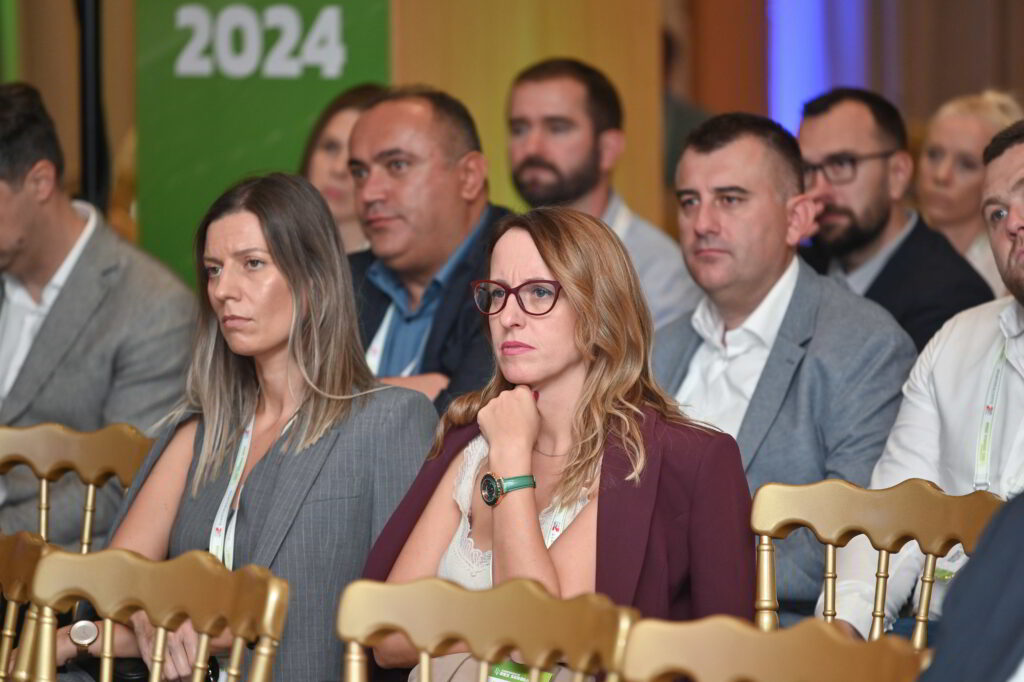
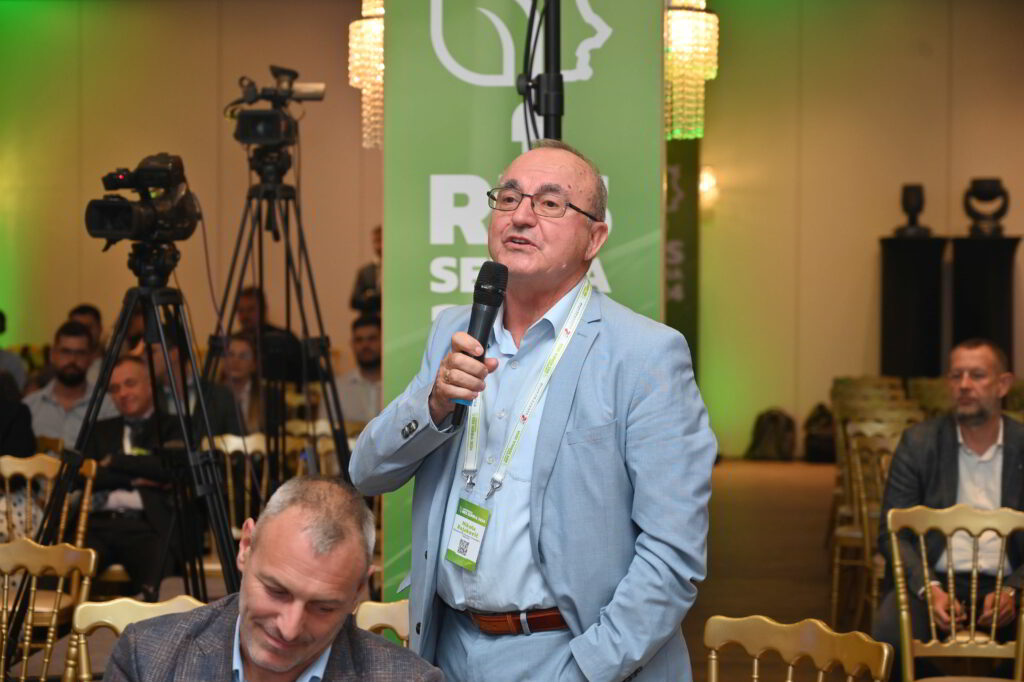
You can watch the full panel recording below:


